How AI is Revolutionizing PPC Advertising (and Where It Falls
How AI is Revolutionizing PPC Advertising (and Where It Falls Short) AI and the New Era of PPC Advertising Pay-per-click (PPC) advertising has always been a game of numbers, targeting, and optimization. But now, artificial intelligence is transforming PPC campaigns into hyper-efficient marketing machines. AI-powered tools promise better targeting, automated bid management, and real-time optimization—but do they truly deliver? As AI takes center stage in PPC, let’s break down how it’s reshaping the industry and where the limitations still exist. Where AI is Changing the Game 1. Smarter Audience Targeting Traditional PPC relies on demographic and interest-based targeting. AI takes it further by analyzing user behavior, purchase history, and engagement patterns to predict who is most likely to convert. 💡 Example: Google Ads’ AI-driven Smart Bidding uses machine learning to analyze signals like device, location, and time of day to maximize conversions automatically. 2. Automated Bid Adjustments AI-driven PPC platforms now adjust bids in real-time, ensuring you get the best possible ROI. Instead of manually tweaking bid strategies, AI algorithms analyze thousands of data points per second to optimize for clicks, conversions, or cost-per-acquisition (CPA). 💡 Example: Facebook’s Automated Bidding dynamically adjusts ad spend based on user interactions and conversion likelihood. 3. AI-Powered Ad Copy and Creative Optimization AI tools like ChatGPT and Copy.ai generate compelling ad copy variations that A/B test themselves, while platforms like Midjourney and DALL·E assist in visual ad design. AI-driven ad creatives ensure ads remain engaging and tailored to audience preferences. 💡 Example: Google’s Responsive Search Ads (RSAs) allow AI to mix and match different headlines and descriptions, determining the best-performing combinations over time. 4. Fraud Prevention and Click-Through Rate (CTR) Optimization Bots and fraudulent clicks have long plagued PPC campaigns. AI-powered fraud detection tools identify suspicious activity, invalid clicks, and bot-driven traffic before they drain your budget. 💡 Example: Platforms like ClickCease and CHEQ use AI to block fraudulent traffic and optimize ad spend. Where AI Falls Short in PPC Advertising 🚧 1. Lack of Human CreativityAI may optimize existing strategies, but it struggles with original, emotionally compelling ad campaigns. The best PPC ads connect with users on a human level—something AI still can’t fully replicate. 🚧 2. Misinterpreting Data TrendsAI makes bid and targeting decisions based on historical data, but it can’t fully understand context or industry shifts. If a sudden trend emerges (like a viral product), AI may take time to adapt. 🚧 3. Over-Reliance on Automation Can Be CostlyPlatforms like Google’s Smart Bidding work well but sometimes overspend, prioritizing conversions at any cost rather than maintaining a controlled budget. Manual oversight is still necessary. 🚧 4. Privacy & Data RestrictionsWith increasing privacy laws (GDPR, iOS tracking restrictions), AI’s ability to track user behavior is shrinking. PPC advertisers must balance AI automation with ethical data usage. Final Verdict: AI in PPC—Essential, but Not a Replacement AI is a game-changer for PPC advertising, offering automation, real-time adjustments, and smarter targeting. However, human oversight, creativity, and strategic intervention remain irreplaceable. The best PPC strategies combine AI-driven automation with human creativity and expertise. Smart marketers use AI to enhance their campaigns, not replace their intuition. Suggested External Links for Authority & SEO:
How AI is Revolutionizing PPC Advertising (and Where It Falls Read More »

